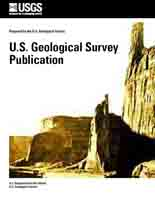Baseline water-quality characteristics of the Alaska Army National Guard Stewart River Training Area near Nome, Alaska
Links
- More information: USGS Index Page (html)
- Download citation as: RIS | Dublin Core
Abstract
The Alaska Army National Guard Stewart River Training Area is approximately 23 miles north of Nome on the Seward Peninsula in northwest Alaska. The Stewart River Training Area encompasses much of the Stewart River Basin and a small part of the Snake River Basin. Hydrologic, water-quality, and physical-habitat data were collected at seven surface-water sites within the Stewart River Training Area during the summer runoff months (late-May to early-September) in 2004. Two of the sampling sites selected for this study were on the main stem Stewart River, one at the upstream boundary and one at the downstream boundary of the training area. Continuous hydrologic, precipitation, and water temperature data were collected at these two sites throughout the summer of 2004. Three pond sites, along the upper, middle, and lower reaches of the Stewart River within the training area, were each sampled twice during the summer of 2004 for analysis of water-quality constituents. Two tributaries to the Snake River Basin, Goldbottom Creek and North Fork Snake River, within the Stewart River Training Area boundary, also were sampled twice during the summer of 2004. Water-quality data collected from the Stewart River at the upstream and downstream study sites indicate similar constituent concentrations. Concentrations of most water-quality constituents collected during the summer of 2004 did not exceed standards for drinking water or recreational contact. Analysis of trace-element concentrations in bed sediment samples indicate the threshold effect concentration (below which no adverse effects on organisms is expected) was exceeded for arsenic, chromium, and nickel concentrations at all sample sites within the Stewart River Training Area and cadmium, copper, zinc, and lead concentrations were found to exceed the threshold effect concentration in varying degrees at the sample sites. The probable effect concentration (above which toxic effects on organisms is likely) was exceeded by arsenic concentrations at all sites except the lower pond site. Chromium and nickel concentrations exceeded the probable effect concentration at the upstream Stewart River site and at the North Fork Snake River site.
Suggested Citation
Eash, J.D., 2005, Baseline water-quality characteristics of the Alaska Army National Guard Stewart River Training Area near Nome, Alaska (Online only): U.S. Geological Survey Scientific Investigations Report 2005-5221, 54 p., https://doi.org/10.3133/sir20055221.
ISSN: 2328-0328 (online)
| Publication type | Report |
|---|---|
| Publication Subtype | USGS Numbered Series |
| Title | Baseline water-quality characteristics of the Alaska Army National Guard Stewart River Training Area near Nome, Alaska |
| Series title | Scientific Investigations Report |
| Series number | 2005-5221 |
| DOI | 10.3133/sir20055221 |
| Edition | Online only |
| Year Published | 2005 |
| Language | English |
| Contributing office(s) | Alaska Science Center |
| Description | 54 p. |
| Online Only (Y/N) | Y |
| Additional Online Files (Y/N) | N |


